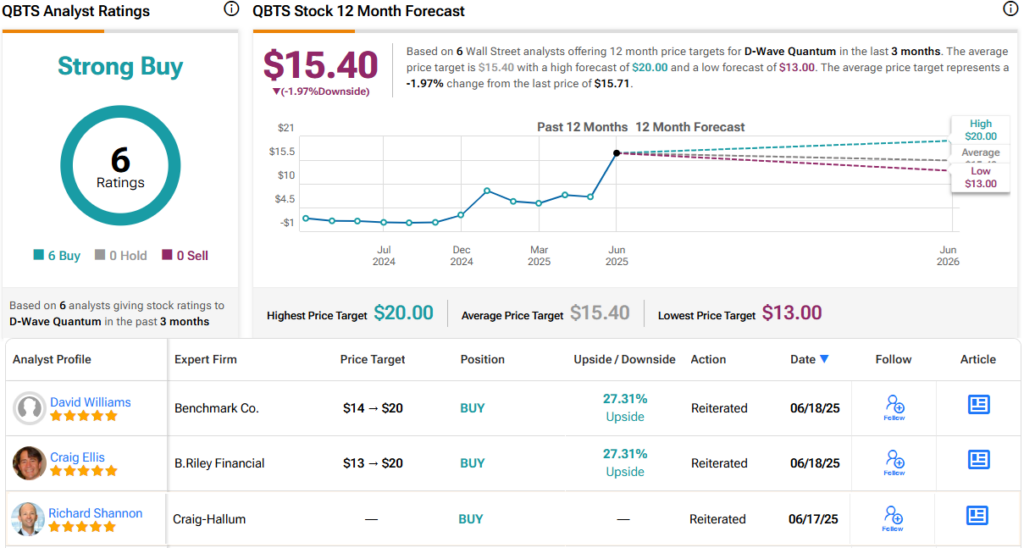D-Wave Quantum Accelerates Global Ambitions—Benchmark Calls It the ’Blueprint for International Expansion’
Quantum computing just got a passport. D-Wave's latest move isn't just growth—it's a full-scale geopolitical play in the tech arms race.
Wall Street's betting on qubits now? Let's see how long before the 'disruptive' narrative meets quarterly earnings.
Confident Investing Starts Here:
- Easily unpack a company's performance with TipRanks' new KPI Data for smart investment decisions
- Receive undervalued, market resilient stocks right to your inbox with TipRanks' Smart Value Newsletter
Earlier this week it further cemented its status as a leader in the field. On Tuesday, the company announced it had signed a memorandum of understanding (MOU) with Yonsei University and the city of Incheon in South Korea to help speed up the adoption of quantum computing technology.
This is the sort of development that should not be looked upon lightly, says Benchmark’s David Williams, an analyst ranked amongst the top 3% of Wall Street stock pros. “We view this as a significant strategic step that validates D-Wave’s technology on a global stage and, most importantly, establishes a clear framework for the future sale and installation of an Advantage 2 quantum system,” the 5-star analyst went on to say.
Although the MOU isn’t legally binding, it outlines a shared intention to MOVE toward acquiring a system. For D-Wave, this represents a “potential double-digit million-dollar revenue opportunity” and serves as a strategic foothold for expanding its ecosystem in a major, innovation-focused market.
South Korea has also set its sights on becoming a leader in the global quantum scene. With the government pledging around $1 billion over the next several years to strengthen its quantum ecosystem, the analyst believes the MOU establishes D-Wave as a central player in that national effort. Williams thinks that partnering with a leading academic institution like Yonsei University and a key governmental body like Incheon Metropolitan City brings both “significant credibility” and strategic regional access. Moreover, the initiative to build a “quantum cluster” in Incheon – focused on the city’s established strengths in biotech and industry – creates an “opportunity rich environment” for developing practical quantum applications, which are essential for demonstrating D-Wave’s technology in action and advancing commercial adoption.
The MOU, says Williams, launches a “land and expand” approach aimed at building a “self-sustaining ecosystem” that supports long-term, recurring revenue growth. “By jointly developing talent and creating use cases in key areas like biotechnology, D-Wave is building a future customer base for its cloud and software services,” the analyst summed up. “Anchoring this ecosystem with a major hardware installation sets up a valuable and repeatable blueprint for international expansion.”
So, what does all of that mean for investors? It means a new price target for starters and a joint Street-high one at that. Williams’ new objective stands at $20 (up from $14), suggesting the stock will gain 27% in the months ahead. Williams’ rating stays a Buy. (To watch Williams’ track record, click here)
All of Williams’ colleagues agree with that stance; based on Buys only – 6, in total – the stock claims a Strong Buy consensus rating. However, the shares’ huge run up (1278% over the past year) has taken the price right up to the $15.4 average target. With this in mind, watch out for possible upward revisions to price targets or potential downgrades coming soon. (See QBTS stock forecast)

To find good ideas for stocks trading at attractive valuations, visit TipRanks’ Best Stocks to Buy, a tool that unites all of TipRanks’ equity insights.

